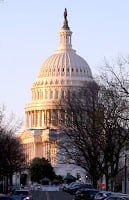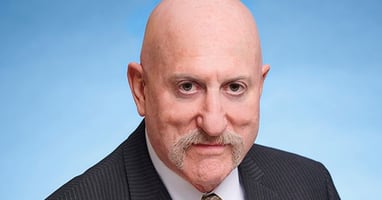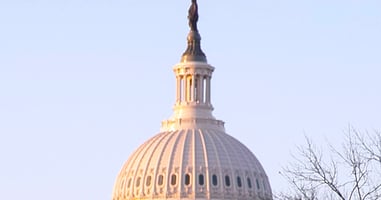During a virtual U.S. House subcommittee hearing today, APA President Jeffrey Geller, M.D., M.P.H.,...
Congress Passes Legislative Package Including APA Model Parity Enforcement Bill

Congress yesterday passed the Strengthening Behavioral Health Parity Act (HR 7539), a bipartisan bill based on APA’s model legislation for improving compliance with the federal mental health parity law.
The bill was passed as part of a year-end funding package that combined annual appropriations legislation for federal agencies and a $900 billion COVID-relief package. The president is expected to sign the legislation later this week.
HR 7539 gives the Department of Labor new powers to regulate and audit health plans to determine if they are in compliance with the 2008 Mental Health Parity and Addiction Equity Act (MHPAEA). The new legislation was introduced by Reps. Joe Kennedy (D-Mass.), Katie Porter (D-Calif.), Gus Bilirakis (R-Fla.), and Fred Upton (R-Mich.), and Sens. Chris Murphy (D-Conn.) and Bill Cassidy, M.D. (R-La.). It reflects language negotiated between the House and Senate related to the bipartisan Mental Health Parity Compliance Act. APA wrote the initial draft and worked with congressional champions to get it introduced and to build bipartisan support.
“This is tremendously good news for the millions of Americans with mental health and substance use disorders,” said APA President Jeffrey Geller, M.D., M.P.H., in a press statement. “Twelve years after mental health parity became the law of the land, the Strengthening Behavioral Health Parity Act will give the government important tools to stop health plans from discriminating against people with mental illness. APA expresses its gratitude to the bipartisan group of lawmakers who, with the support of many advocates, ensured that this act became law.”
The new law applies to federally regulated employer-sponsored (ERISA) plans as well as state-regulated insurance plans. It does the following:
- Requires health plans to perform comparative analyses of mental health/substance use disorder to medical/surgical benefits and make them available to the U.S. Department of Labor (DOL) or a state insurance commissioner in response to complaints or violations or when the secretary or a commissioner deems appropriate.
- Requires plans that DOL deems noncompliant with MHPAEA to inform plan beneficiaries of their noncompliance if they do not make necessary corrections within 45 days.
- Requires the secretary to send an annual report to Congress that identifies plans that are out of compliance.
The combined year-end funding package and COVID relief package also contains support for other mental health and substance use-related programs and initiatives. These are among the many highlights:
- $6 billion for the Substance Abuse and Mental Health Services Administration (SAMSHA) in annual appropriations and an additional one-time $4.25 billion in funding for SAMSHA as part of the COVID-relief package.
- $600 million in new COVID-relief funds for Certified Community Behavioral Health Clinics (CCHBC) and extension of the CCBHC demonstration program by three years.
- $16 million in funding for the Substance Use Disorder Treatment Workforce Program, a loan repayment program, through the Health Resources and Service Administration.
- $1.47 billion for the National Institute on Drug Abuse, $390 million for the National Institute on Minority Health and Health Disparities, and $2 billion for the National Institute of Mental Health.
- $25 million for research related to firearm violence and prevention.
“Passage of the Strengthening Behavioral Health Parity Act paired with this year-end funding package are essential in our efforts as we continue to face a mental health crisis in this country,” said APA CEO and Medical Director Saul Levin, M.D., M.P.A. “This act is a good example of how Congress can work in a bipartisan manner to keep Americans’ mental health needs on their radars and invest in programs that help us navigate the pandemic.”
(Image: David Hathcox)





